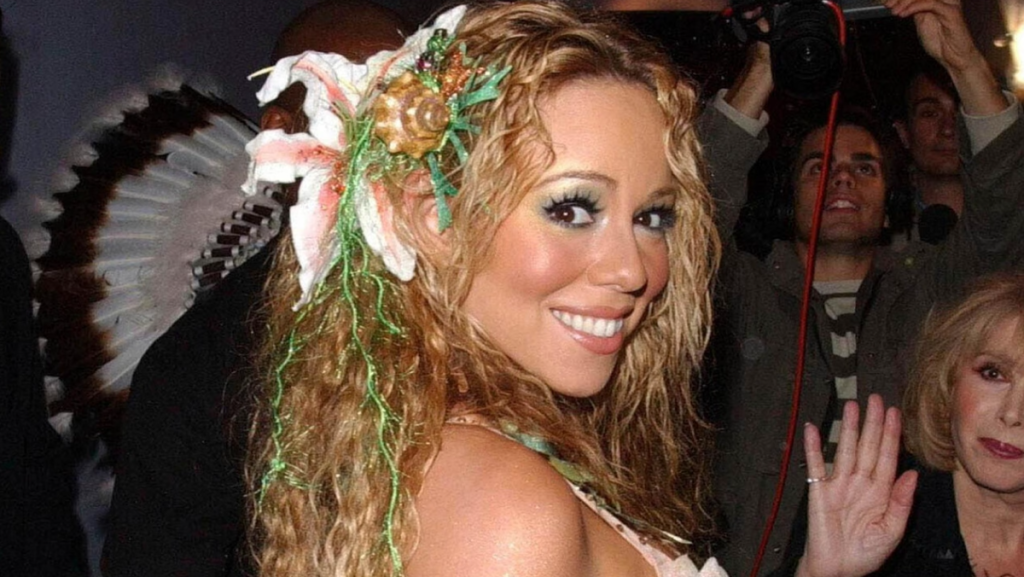In 1990, the music world was no stranger to fresh faces. But that year, a young woman with a five-octave range, a pen in her hand, and a voice that could make radios tremble quietly dropped her debut album. Her name? Mariah Carey—barely in her twenties.
You’ve probably heard her iconic hits—Hero, We Belong Together, or that one Christmas anthem that practically owns December (All I Want for Christmas Is You). But long before she became the meme-able, diamond-wearing diva we know today, Mariah Carey, the self-titled debut, was her first true masterpiece—and the start of a musical mythology.
Some say the whole thing felt orchestrated, like destiny dressed up as a marketing plan. And they wouldn’t be wrong. Columbia Records saw something in her—or rather, Tommy Mottola, the then-CEO of Sony Music, did. After hearing a demo tape Mariah recorded with early collaborator Ben Margulies, Mottola pulled the industry emergency brake. “When I first heard and saw Mariah, I had no doubt she was destined for superstardom,” he recalled years later. It might’ve sounded like standard label hype at the time—but history proved him eerily right.
Mariah wasn’t just a pretty face with vocal cords. Though Columbia gave her the dream team of ’90s hitmakers—Rhett Lawrence, Walter Afanasieff, Narada Michael Walden—she wasn’t just handed the songs. She wrote them. All eleven tracks on the album had her fingerprints, her feelings, her fight. In a male-dominated music industry where female singers were often just voices for hire, Mariah came in with a pen, a plan, and a point to make.
It wasn’t just bedroom songwriting either. This was the ’90s—before laptops and GarageBand. Writing music meant hours in the studio, arguments over arrangements, and recording sessions that bled into morning. That level of involvement, especially for a 20-year-old debutante, was rare. And it mattered.
Take Vision of Love. The opening track. The statement piece. The sonic entrance that told the world: this is not your average ingénue. It’s a song that doesn’t just show off her range—it breaks the ceiling and lets the stars in. You don’t need to understand whistle notes or vocal registers to feel the goosebumps.

That track alone became a rite of passage for American Idol hopefuls and shower divas alike. Choosing to sing Vision of Love was like stepping into a vocal gladiator arena. You either impressed—or got destroyed.
The debut album earned Mariah the Grammy for Best New Artist, multiple Billboard No. 1s, and a superstardom trajectory that barely took a breath. But beyond the charts, there was something beautifully unpolished about her back then. She hadn’t yet mastered the red carpet smile. She wasn’t entangled in music industry drama. There was no diva feuding, no tabloids, no meme quotes like “I don’t know her.” There was just a girl with a voice—and what a voice.
Revisiting this album now feels like listening to a diary from a time before fame got noisy. When she sings Love Takes Time, it doesn’t feel like performance—it feels like confession. And that’s probably why it still hits.
Plenty of Western fans have stories about their “first Mariah moment.” Writer Kate Hudson once recalled hearing Someday in her older sister’s bedroom and feeling the world crack open. Music critic Mark Jenkins remembered working in a San Francisco record store where Mariah’s album played nonstop—he claims one of her high notes literally made him stop mid-window cleaning.
That’s the magic of music. No hashtags. No viral dances. Just a voice that makes you pause.
Sure, Mariah would go on to top herself. Daydream, Butterfly, The Emancipation of Mimi—albums that expanded her legend. But her debut? That was the seed. The raw beginning. The perfect balance between vulnerability and power. You could feel her uncertainty, but also her undeniable control.
Now, 35 years later, listening to Mariah Carey again isn’t just about nostalgia—it’s about witnessing the moment a legend quietly arrived, not with a bang, but with a note that climbed into the clouds and never came down.
She didn’t just sing her dreams—she invited us into them. And somehow, we’re still there.
